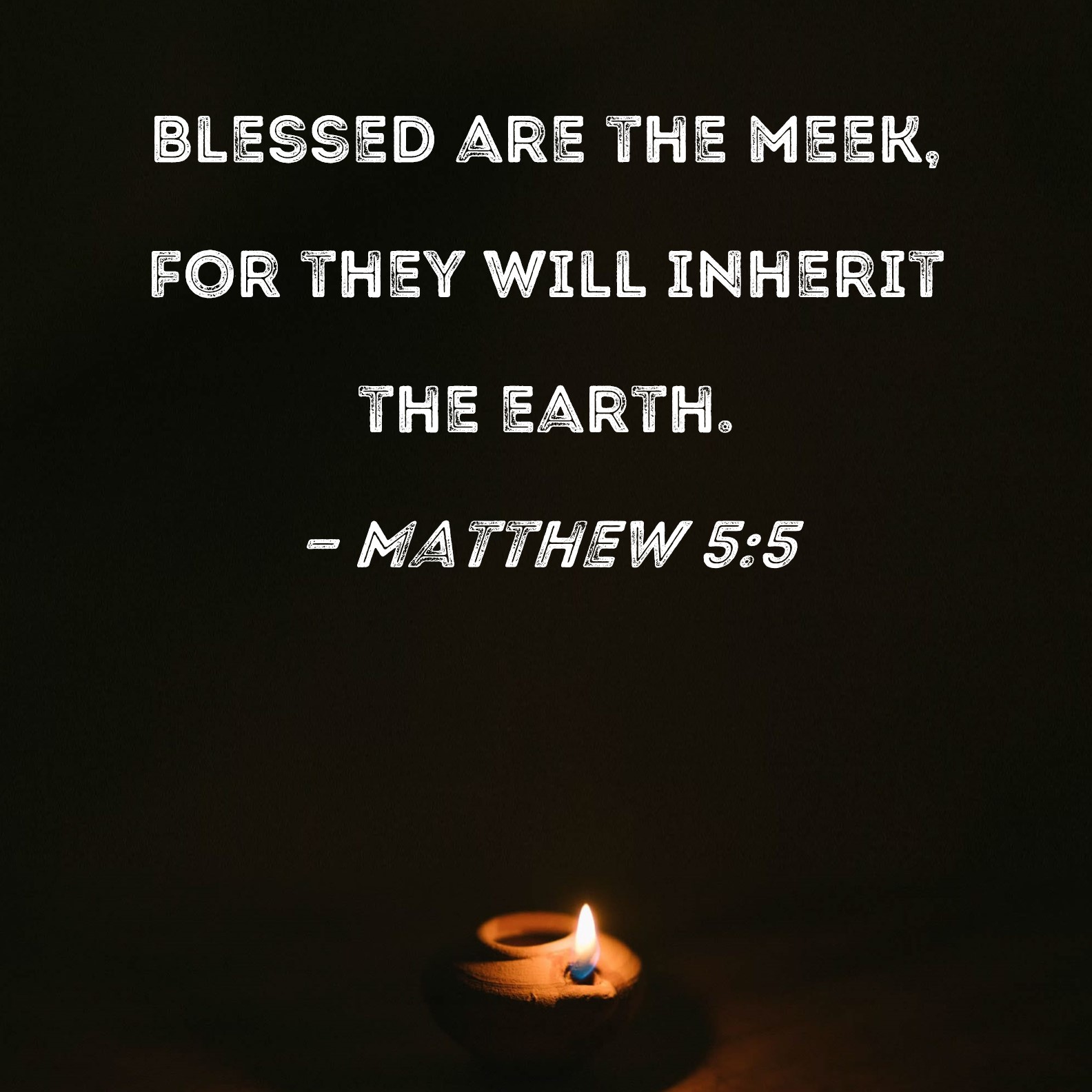Living Like Yeshua, Part 3 (Matthew 5:5)

The third blessing of Yeshua's Sermon on the Mount says that the meek will inherit the Earth. In a Greek transliteration, this comes out to
"Happy are those of willfully surrendered strength, because they are allotted heirs of the land." Matthew 5:5
The Greek word for meekness is "praeis". Countless articles have been written, which compare this to wild horses which have been tamed and turned into warhorses. Which isn't entirely untrue. But digging a little bit deeper into the antiquity of its usage, praeis really doesn't seem to actually implicate any kind of strength or military origins, either in Scripture or in secular sources written in contemporary. But it doesn't imply any sense of weakness, either. It is neither. It is simply its own thing. When used in a people context, it is generally associated with a gentle, regulated temper. When used in the context of beasts, it is simply "tame", whether a broken warhorse or a domesticated herd animal like a cow or sheep.
Other forms of this Greek word are used elsewhere in the New Testament, including James 1:21 and James 3:13. It is having the right or the power to do something but refraining for the benefit of someone else. Paul urged meekness when he told us “to live a life worthy of the calling [we] have received. Be completely humble and gentle; be patient, bearing with one another in love” Ephesians 4:1–2.
And what better image of Praeis than Jesus himself? The son of Yahweh, He had every right to exercise his power and authority whenever and wherever He wanted. But He submitted to the Father, even when that meant submitting to those who would kill him. The Lion of Judah who came as a lamb.
Praeis is kindness, is gentleness, is turning the other cheek. Praeis is giving your coat to someone suing for your shirt. Praeis is walking two miles for someone who forced you to walk one. Whether you are inherently strong or inherently weak, it matters little.
And we are told that those who live praeis are heirs to the land. With the word land being used in wide context--from the soil itself, to a specific region, to the entire globe. This is neither the first nor last time we are told someone does or does not inhabit the land
Those who WILL inherit:
-The upright and blameless, Proverbs 20:21
-The righteous, Psalm 37:29
-The poor/humble/lowly/afflicted (Hebrew 'anawim', translated as 'meek'), Psalm 37:11
-The meek 'praeis', Matthew 5:5
-Those who wait for the Lord, Psalm 37:9
Those who will NOT inherit:
-sexual immorality, impurity, sensuality, idolatry, sorcery, enmity,
strife, jealousy, fits of anger, rivalries, dissensions, divisions,
envy, drunkenness, orgies, Galatians 5:19-21
-The wicked, 1 Corinthisans 6:9
-The proud, Isaiah 13:11
-The violent, Genesis 6:13
-Slanderers, Psalm 101:5
And just how serious is this? Consider that in Numbers 12:3, Moses is regarded as the meekest man on the face of the Earth (although Numbers was also written by Moses, so... However meek it is to comment on how meek you are...) But because Moses-however meek that he was--briefly slipped into a fit of anger, he was denied inheritance of Canaan!
Happy are those who live with the gentle calmness of a lamb. They will inherit the land.


Comments
Post a Comment